A new film by Jane Campion is always going to be a magnetsing prospect and the idea of it suddenly appearing on Netflix, after the shortest stint in cinemas, is a thing of wonder. Jane Campion is that rarest of Australian – Antipodean, if you like, given that she’s a Kiwi – creatures, an auteur.
Whether it’s in the vicinity of the famous Janet Frame story An Angel at My Table with Kerry Fox or in the case of The Piano with Anna Paquin giving one of the greatest child performances of all time and Holly Hunter as her mute mother the effect is of originality through and through.
That’s true with bells on of her early backwards running film Two Friends with the Helen Garner script but it tends to be true of everything she touches.
It couldn’t quite be true of Bright Star the Keats biopic with Ben Whishaw, fine though the central performance was. And her film of Henry James’ Portrait of a Lady – one of the two greatest novels in the English language Leavis called it – was always going to rub up against people’s preconceptions with casting. Would Frances O’Connor have made a better Isabel Archer than Nicole Kidman? Wasn’t John Malkovich too New York, too contemporary in his sinister insinuations as Gilbert Osmond when the role cried out for Campion’s countryman Sam Neill at his most James Mason-like. Still there was Barbara Hershey as Madame Merle, there was Shelley Winters as Mrs Touchett. There was that all too rare spectacle of one great artist trying to come to terms with another, without compromise.
Now she has made The Power of the Dog with Benedict Cumberbatch, a western of all things, and no one is going to care about the novel it derives from.
Cumberbatch is superb, so is Kirsten Dunst as his homely alcoholic sister-in-law and an all but unrecognisable Kodi Smit-McPhee as a sylph-like nephew, apparently gay but shadowed with ambiguity. The whole film is shadowed and shrouded with something the great director never quite gets on top of and which issues into episodic moments full of edgy but never quite articulated insinuation that make the film formidably complex but which remain the tesserae of a vision that hovers into focus, that is never quite there, or not for long enough to know what we’re looking at.
The setting is Montana, cold looking and wide open but constituting a circumscribed world. It’s cowboy country and Benedict Cumberbatch who gave a performance in the Stoppard adaptation of Ford Maddox Ford’s Parade’s End to match Roger Livesey’s in The Private Life of Colonel Blimp, or anything by Ralph Richardson, plays the lead cowboy like the great actor he is.
His brother, the homely Jesse Plemons just goes off and marries Kirsten Dunst but Cumberbatch is a man of concerted savagery and of a self-possession that verges on madness. When Keith Carradine and Frances Conroy – both unrecognisable – visit the family home they remark that Cumberbatch who refuses to wash in order to dine with them is a Phi Beta Kappa in Classics from Yale and Carradine in a remark characteristic of the terse subtlety of the film says, ‘I wonder if he swears at the cattle in Greek or in Latin’.
The Power of the Dog is an almost literary, hence quasi-crippling exercise in mood setting which is not to deny that it is superbly composed and beautifully shot, nor that every semi-muttered private utterance has its own point, even if some of them are half-strangled.
Cumberbatch shows contempt for everybody. The time is 1925. Dunst has played piano at the movie house but is too nervy to perform in the society that cakes this world like a sheet of sugared ice.
The inconsolable brute of a brother refuses to acknowledge anything but the ancestor who taught him how to exact control over a horse or subdue cattle, how to kill and how to avoid dying, not least from anthrax.
It’s a doom-laden world, and the title is remotely familiar from the psalm that figures in the Burial of the Dead and after the stripping of the altars on Good Friday, the one about being a worm and not a man, the danger of lions’ jaws. The world Jane Campion creates in The Power of the Dog is sombre with risk and when the son of the windowed Dunst enters this world like a fairy creature from a lost world of civility we fear for him.
Cumberbatch derides him as some kind of nancy boy dude and Kodi Smit-McPhee is weirdly angled and wraithlike as the gentle boy who wants to be a surgeon and catches rabbits like a little boy, and then breaks their necks, like an arbiter of the brutality of the world.
Late in the piece we hear of the tragic death of his father, and throughout the slow, dark progress of this anti-western from the mouth of privately endured hells we feel death creeping and crawling and stalking, forever in danger of being about to pounce.
The bitter man takes up the pretty boy wraith. He asks him to tell him what he sees in the expression of those hills, to imagine what the legendary Bronco saw and when Smit-McPhee says it’s the face of the dog Cumberbatch is impressed as if a mighty and unspeakable thing had penetrated him. And then everything tips, why we’re not sure, where it was always going to tip, and the resonance of the psalm seems an inevitability.
It was reading Gogol’s Dead Souls that Pushkin exclaimed, ‘God, how sad Russia is!’ Well, The Power of the Dog makes you exclaim, ‘God, how sad America is!’ It is the work of an actor and a director of genius and it is almost stammering in its swallowed subtleties and bitten-off innuendos.
Is the boy the angel of death, is the cowboy genius the eternal voice of a self-hatred that cannot know forgiveness? Is this a wholly credible snippet of a long ago, intensely familiar America a world poisoned with sexual repression and desire in its unswerving sorrow?
Jane Campion’s The Power of the Dog is not a great film but the shreds and stumbles of greatness make up every inch of it.
Got something to add? Join the discussion and comment below.
Get 10 issues for just $10
Subscribe to The Spectator Australia today for the next 10 magazine issues, plus full online access, for just $10.
You might disagree with half of it, but you’ll enjoy reading all of it. Try your first month for free, then just $2 a week for the remainder of your first year.

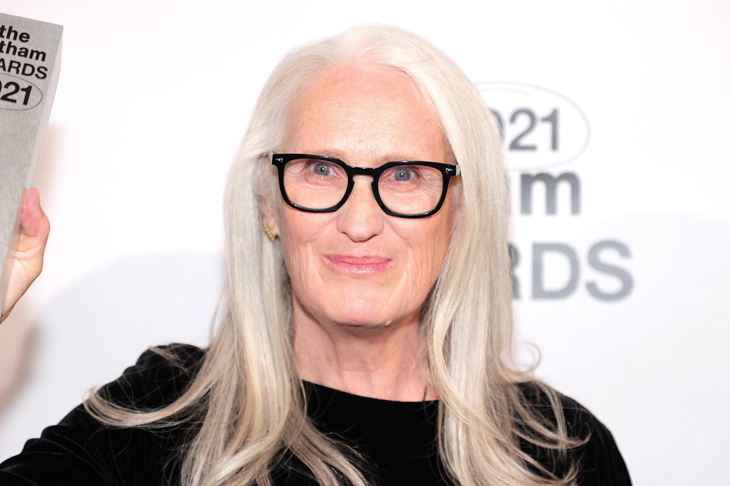
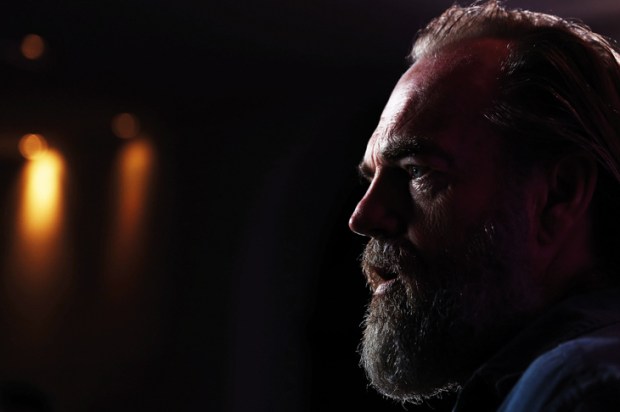
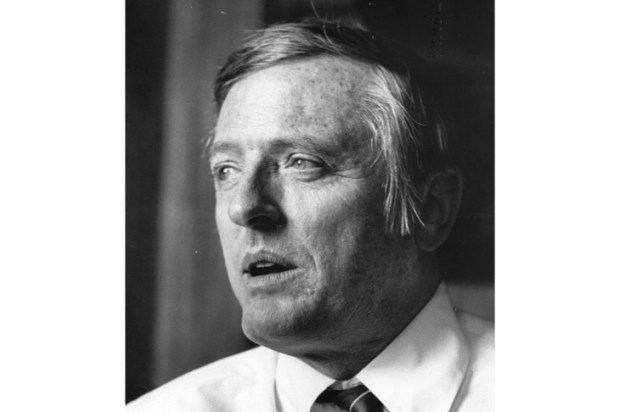
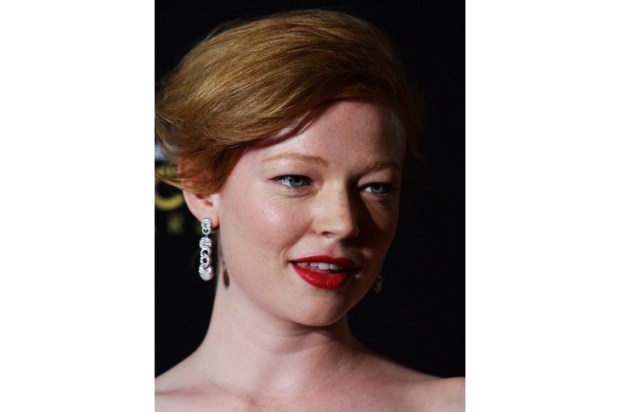

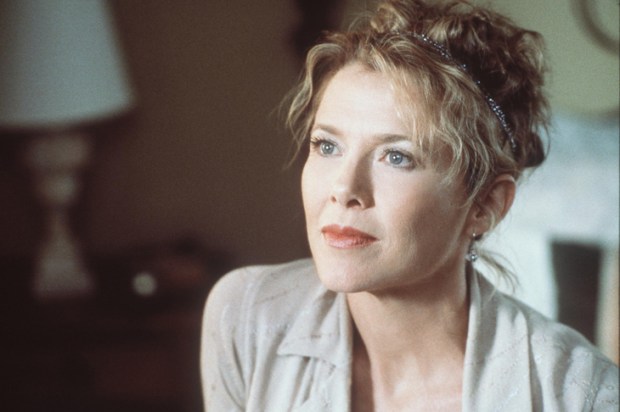







Comments
Don't miss out
Join the conversation with other Spectator Australia readers. Subscribe to leave a comment.
SUBSCRIBEAlready a subscriber? Log in